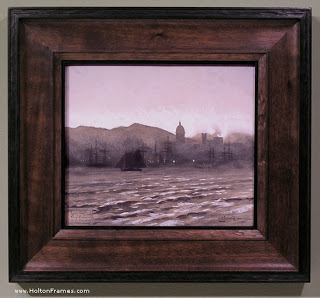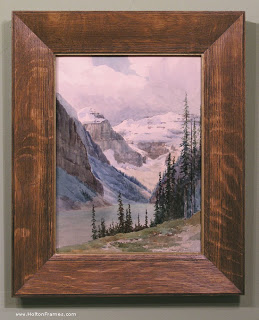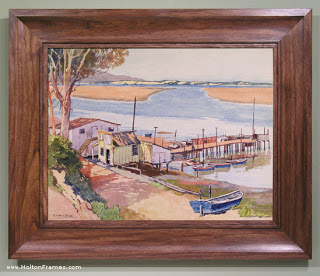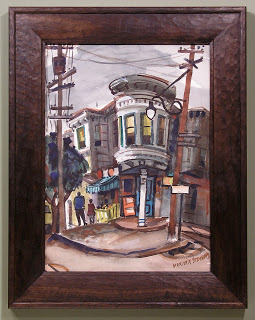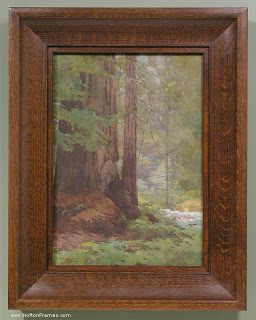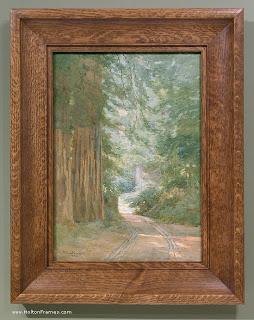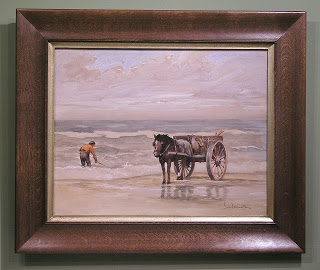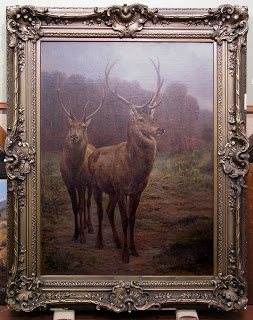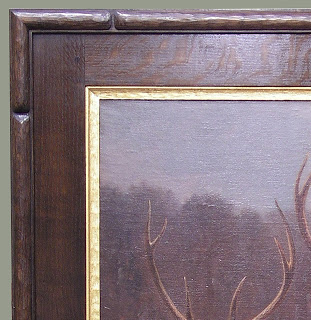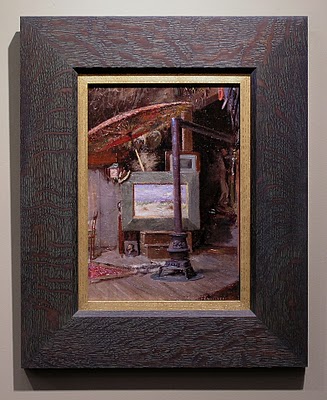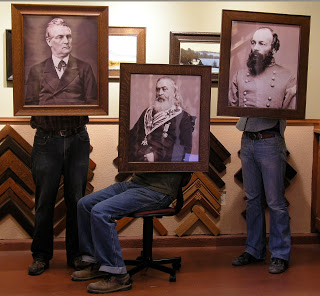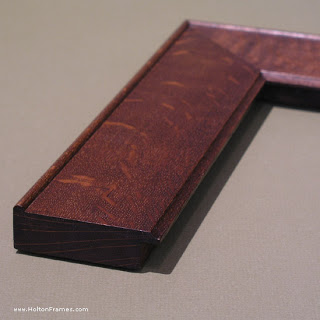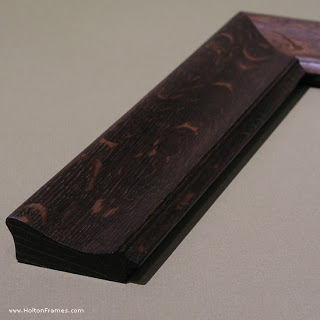Last year we re-framed a couple of paintings of stags, both by premiere nineteenth century French wildlife painter Rosa Bonheur, which I blogged about here. We just did another one, and at 48″ x 36″ it’s considerably bigger than the first two. First, here it is in the compo exhibition frame that we were to replace:
And here it is now:
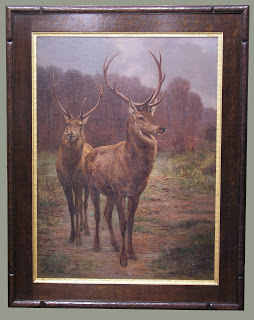
Given the log house setting it’s going in, our solution leans more to the rustic than it might have considering the highly formal (I generally use the term in reference to form, not sophistication and refinement) treatment of the subject matter. But having the frame come out of the same appreciation of the beauty of nature and handcraft that the painting does—especially in contrast to the original frame—more than makes up for whatever formal refinement we left out of the profile. (For a more formal profile on a similar painting, see the earlier entry on re-framing Bonheur stags, here.) I stand by it as a far more sympathetic setting than was the old frame, and far more successful at the primary job of a frame, which is to help us see the picture. Any rejection of pretentiousness and false luxury in art is a step in the right direction! Taking a picture from an exhibitionist presentation to one in harmony and sympathy with the picture is fulfilling one of my favorite William Morris phrases: “for beauty’s sake and not for show.”
This is a compound frame with a mortise-and-tenon flat, a carved cap-molding and carved and gilt liner. After that wonderful reward of the framer—the moment when you finish fitting the picture and turn over the completed piece to see it—Trevor and I were struck by how the highlights were enhanced. Is it the gilt liner, the darker frame, or the combination? Beyond that, I can’t add anything that I didn’t say in the previous Bonheur re-framing example.
Here’s a corner detail:
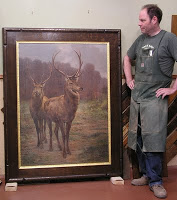 Trevor Davis gets credit for making it. Here’s the proud craftsman—giving you a sense of the scale of the piece, too.
Trevor Davis gets credit for making it. Here’s the proud craftsman—giving you a sense of the scale of the piece, too.
